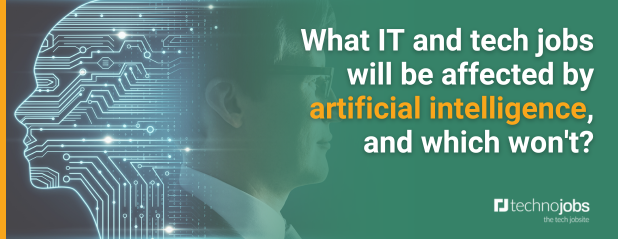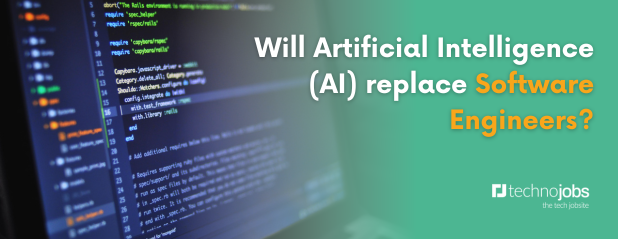The top 10 Artificial Intelligence (AI) skills to learn in 2022

Artificial Intelligence also known as AI, is the simulation of the human brain and activity in a machine, meaning machines can carry out human tasks to make our lives easier. More and more companies are using AI for the automation of everyday tasks to allow their employees to achieve more complex goals.
According to the World Economic Forum, the rise of AI technology will eliminate 85 million jobs, however, it will create 97 million new ones by 2025. That’s an overall addition of 12 million jobs.
Therefore, if you are working in the IT industry, and already possess some of the skills listed below, by developing just a few more skills you could find yourself working within the growing sector of AI.
1. Programming Languages
In order to be able to build AI into your software you need to understand various programming languages, some of which are better suited to AI development. Some of the top programming languages used in AI include:
- Python
- JavaScript
- SQL
- C#
For example, Python is considered the best for AI development, as it is easy to learn and it is a leading language for data analysis and Machine Learning, two key aspects of AI.
2. Machine Learning
Machine Learning is an application of AI that explores the structure of algorithms and how they can be used to make predictions from large sets of data. Thanks to Machine Learning computers can learn from experience and adapt in situations to make certain decisions. Machine Learning has the ability to automate analytical model building using methods from neural networks and statistics without having to be specifically programmed to do so, in turn, optimising processes.
3. Neural Networks
Neural networks, also known as artificial neural networks (ANNs) are a collection of algorithms that attempt to identify hidden relationships in data using a method that imitate how the human brain works. ANNs are a subset of Machine Learning and are also involved in deep learning. ANNs rely on data training, overtime improving their accuracy, some examples of these include handwriting recognition, speech-to-text transcription, weather prediction, and facial recognition.
4. Deep Learning
The terms "deep learning" and "neural networks" are frequently used interchangeably which can cause confusion. However deep learning just indicates the number of layers in a neural network. A neural network with more than three layers, including the inputs and outputs, is referred to as a "deep learning algorithm." A simple neural network is one that simply includes two or three layers.
So similar to ANNs, deep learning includes predictive analytics and pulls different layers to gain deeper features from a sounds or images. It will continue repeating the process until its output has achieved the accurate outcome.
5. Data Skills
AI is built on data and requires large data sets in order to be built effectively. Therefore, it is essential to understand various data topics, including:
- Data analysis
- Data manipulation
- Data visualisation
Improving these data skills can help to improve the accuracy of AI applications when developing them.
6. Communication Skills
When working in technical fields you will often need to have excellent communication skills in order to be able to translate your projects and research to less technical audiences. For example, you may be asked to create and deliver a new artificial intelligence model within your company, for which you would need to present to various departments, therefore both verbal and non-verbal communication skills are essential.
7. Signal Processing Techniques
Signal Processing is a branch of electrical engineering that analyses data representations of physical events. It is used in everyday life in things including autonomous driving and wearable technology. AI requires a thorough understanding of signal processing techniques therefore AI experts that are proficient in this topic can increase productivity and efficiency in digital communication.
8. Problem-Solving Skills
AI involves creating algorithms to build solutions and processes, and therefore it is important you are able to think creatively. Strong problem-solving skills can help you think of innovative ways to create strategies and ideas to address problems. Additionally, you must also be willing to improve your knowledge of new technologies and tools to help with development.
9. Mathematical & Statistical Skills
In order for AI to work, you need to programme machines to think like humans. This involves implementing algorithms that can have different outcomes. In order to create algorithms, you need to understand the basics of statistics. You will need to learn the different types of probability distributions, as well as topics including hypothesis testing and sampling. A strong statistical foundation will help you to build machine learning models and aid with data pre-processing and feature selection.
10. Understanding of Linux
Linux, is an open source operating system and is the go to system for AI and Machine Learning (ML). It offers high performance, which is essential for data-heavy processes commonly used in like AI and ML.
Artificial Intelligence Jobs
Below are just a few of the jobs in AI as well as some positions that work closely with those in AI roles:
Job opportunities within artificial intelligence are only going to grow as technology continues to innovate. So, if you're thinking about a career in AI, now is the time to take action. There has never been a better opportunity to hone your AI abilities, with companies investing extensively in this technology and a talent shortage.




